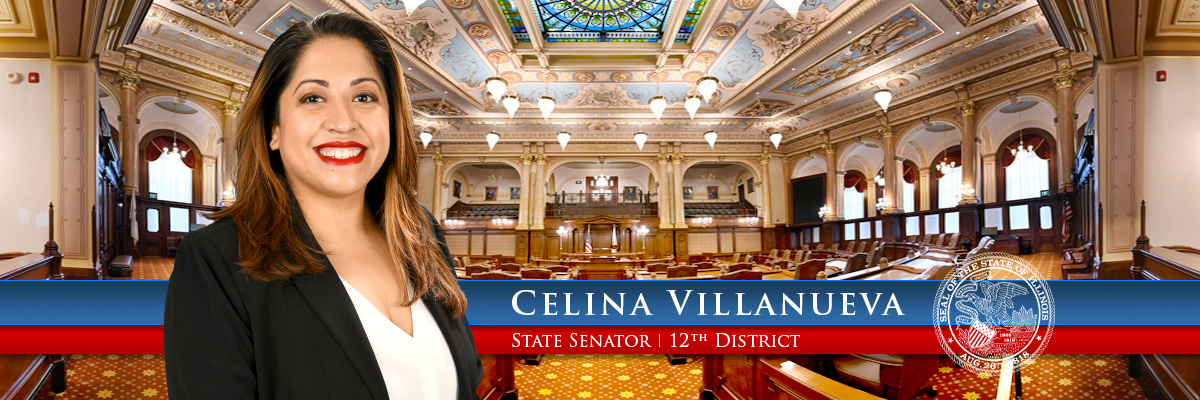
WASHINGTON, D.C. – State Senator Celina Villanueva joined legislative leaders at the White House Wednesday to discuss ways they can continue to fight for reproductive rights since the overturning of Roe v. Wade last year.
As many black and brown communities have long faced barriers to abortion access and health care largely due to systemic barriers and discrimination, continuing the fight for equal healthcare rights and abortion care on a national level gives hopes to a population who is often overlooked and misrepresented,” said Villanueva (D-Chicago). “Abortion is health care and everyone, no matter their income, immigration status, or zip code should be able to access the care they deserve without fear and obstacles.”
Since the Supreme Court overturned Roe v. Wade last year, 20 states have abortion bans in place, while more are set to take place during the summer. However many states including Illinois have measures in place that protect residents’ right to choose regardless of the Roe vs. Wade decision.
Governor JB Pritzker signed HB4664, a reproductive rights and gender affirming care omnibus bill that protects health care providers and their patients from legal attacks by neighboring states and expands health care access and options across the state. The bill takes historic action to protect Illinois providers and their patients, thousands of whom have traveled to Illinois to access essential reproductive health care now banned in their home states.
In addition to supporting HB4664, a reproductive rights and gender affirming care omnibus bill that protects health care providers and their patients from legal attacks by neighboring states, Villanueva championed SB 1909 that prevents crisis pregnancy centers from using deceptive practices that interfere with women’s health care decisions. Her SB 1907 legislation allows college students to purchase non-prescription wellness products at a reduced price in at least one wellness kiosk on each campus. Additionally she brought forth SB 1344 legislation that provides coverage to an individual or group seeking abortifacients, hormonal therapy medication, human immunodeficiency virus pre-exposure prophylaxis, and post-exposure prophylaxis drugs approved by the United States Food and Drug Administration, and follow-up services related to that coverage.
With one of three women, Trans and nonbinary people who can get pregnant living in a state where some or all abortion is banned, it is important that resources are allocated to Latina women in abundance. Almost half of all Latinas of childbearing age live in states trying to control their bodies putting them in uncompromising positions. In states where some or all abortion is banned, the number of Latinas of childbearing age grew substantially from 2010 to 2019.
“As a Latina of childbearing years, I am honored to be on the frontline fighting for reproductive healthcare rights on a national level with my fellow legislators and leaders,” said Villanueva. I look forward to seeing how the Biden administration will continue bringing people together to better fight to protect people.”




